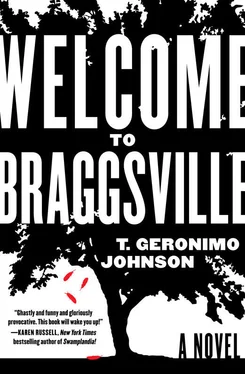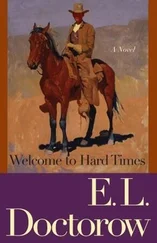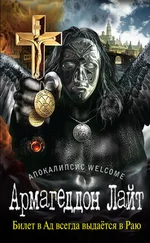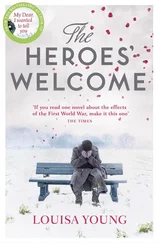How’s that?
This is serious, isn’t it, Daron.
How’s that?
Us.
Us?
You. Me. Us. Living together. This city. New Orleans, for Christ’s sake. We say Nola, but it’s not. It’s fucking New Orleans. I have a goddamned fleur-de-lis tattooed on my ankle. When my parents got mad because I cut my hair, I grew it back out, but dreaded it in retaliation. How fucked is that? When we gave Charlie and Freddie that tour, you pontificated on the differences between Louisiana and Red Rooster hot sauces. The same goddamned company makes both of them. It’s not our city. After everything. This is real, said Candice. She drew a long breath, nuzzled deeper into her pillow. This is real.
Very, very. Daron nodded and rapped the headboard: a section of wall six feet long and two feet high, edged with ribbon and painted gray to match the lamps.
You don’t understand.
The neighbor knocked back.
He laughed.
She sat up. You don’t understand. It’s like the night we did it the first time. You got mad at me, thought I was sick. No one gets mad at me, not like that.
I’m sorry, Candy. I didn’t mean it like that, Candy. You know I was only scared. Candice. Please. Candice.
It’s the same way you looked after the morgue. I saw it today when you looked at Freddie. She lay back down and rolled away from him, sobbed. Daron placed one hand on her arm, where it lay still, a trespasser afraid to be discovered.
I’m scared. It’s real, and Louis is dead, said Candice. And the last thing I said to him was, Shut up! Those might have been the last words he heard. Sheriff knew that. She wailed like a newborn.
And Daron joined her.

MAYBE THAT WAS CANDICE’S BURDEN. Daron heard: We got your back, Joan of Arc! What they’d really said was: Show daddy what you made in school. No one took her seriously, and so she had to take everything seriously. The guard at the Mt. Olivet cemetery and Officer Hernandez. Vandenburg. The professors. Even Sheriff and the coroner. It wasn’t Candice’s fault that everyone listened to her, believed her, assumed she was next in line.
Maybe there was such a thing as tragedy. He had thought she had a power, but recalling how cautiously the flower vendor at their Saturday market twohanded over her bouquets as if she were the frail one, as if delicate, vital petals sprouted from her heart; how Sheriff & Co. talked her out of testifying; how they all wanted to protect her. Even he, Daron, had claimed her idea as his own, to save her blame. Maybe she felt caught between two worlds, too. Maybe she knew how often she was denied direct experience because she looked like someone who had to be protected. Maybe she’d sensed all their big blonde spots, could pass them no more than a starving man an abandoned picnic, a gator a baby. Had she taken everything, or given everything?
[sniff]
Yes. A body could be — No! — was a gift. If the body was a gift, what was Louis’s death? Was it a gift only if accepted, and could it be accepted only if change ensued? It wasn’t ironic, it wasn’t a waste, it wasn’t tragedy, was it? Maybe it was ironic if he died pretending to be black in order to raise awareness about how reenactments lionize racist traditions. It was also ironic if he died trying to be ironic and, fucked up as that was, he and Charlie reached that conclusion separately, sharing it the last night of Charlie’s visit, which, he remembered with a shudder against that chill of time, was only hours past.
[sniff]
He’d also heard Charlie’s mom’s take on things:
The Incident at Braggsville had been too much for Charlie’s mother to bear. It would not have been the first time a Chicago boy made his way South and fell into trouble from which he was dredged, taking second class down and the sleeper back, at least most of him. History always takes her piece, so that the Devil can find his way home.
No, that wouldn’t be the first time, and true we needed progress and people needed to stand up for what was right, and we needed to speak our minds even if our voices cracked, but this was a sacrifice of biblical proportions, and only God himself had the foresight, courage, and well-for-all to sentence his offspring to such a fate, to sacrifice his child for the good of all mankind (God herself, we say sometimes, but rubbing, holding her son’s head to her breast, No, No, No, she hums, never would a mother do or ask such a thing).
But God also had the advantage of being able to resurrect his son, to return upright what the wicked world laid to ground, to breathe into him what light drove the first bird to venture off its safe limbs, the first fish to flounder and struggle ashore, the first single-celled organism to divide, to decide two was better than one, that then there was at least the possibility of love. God had it like that. That’s how God rolled. Not us. Metaphysically: hooptie-ville. Besides, as Dad always said, Racism is the white man’s problem. He started it, and he needs to fix it.
It was too subtle, he knew, they all knew, quite the serpent it was, not unlike the notorious reptile, the so-called demon in Eden, but this one says, Eat of this fruit of the knowledge of race and know thyself to be master of all. Only they who do not eat the fruit bear its painful seed.
[Louis’s cousin had been on a talk show, and was right when he said: Every day that you continue your deceit and your imperialism and your exploitation. Your nepotism. Every time you lie to protect your friends and circle the wagons you are making a choice. Who could blame Louis’s cousin for being angry at what he’d described as a murderous academic exercise? That had cut Daron, who had thought the university the center of the world and learned it was only a part, a smaller part than one imagined, certainly less than advertised. Not all people warm much to others, and nothing the school said or wrote would change that. Uprooted from the soil of lived truth, none of their theories, French philosophers, or social justice creeds amounted to a hill of beans, and wouldn’t grow a beanstalk if they did.]
Daron wants to tell Candice, in sooth… yet tells her not… that he reread his college application letters, then reread his letters. He was right about wanting out. The best thing would be to never return home because you can’t escape after you’re ‘let’ in.
[sniff]
He wants to tell her that their professor had lied, lied, outright lied when she described white privilege as a kind of heliotropism, plants nodding at your passing, plants bent willy-nilly at your passing. It had made sense at the time, but it was a lie. Race wasn’t a natural system and didn’t follow natural laws any more than it followed rational ones, and shouldn’t be compared to natural laws.
Young D’aron had walked the midnight garden flashlight in hand, scanning azaleas, probing morning glories, even inserting a pen light into a crocus. (Sixty-sixty, as Louis would say, 60 = 10.) (Nycti-nasty? Louis would say, You know what’s up with that.) When his father, rifle at hand, found his son thus engaged, he’d chuckled until he choked, but for the first time, D’aron sensed envy and sadness in his father’s laughter, and as they walked back to the house, the Holler behind them, D’aron, who usually felt safe with his father’s heavy arm warming his neck against the fall chill, with the fine hairs teasing his clean jaw, had the uncanny sense that his father wanted to tell him something but couldn’t or didn’t know how, or, worse even, didn’t yet know that he needed to, felt it as surely as the prickling that arose when one entered the Holler, that ghostly presence that announced itself only after you were too far beyond that rank of elfinwood to turn back.
Читать дальше
Конец ознакомительного отрывка
Купить книгу













